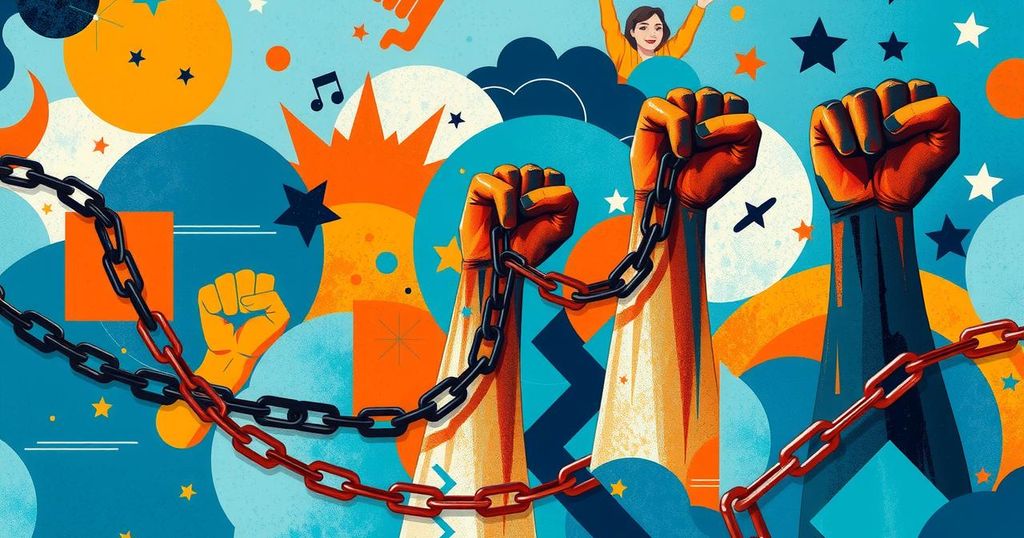World news
AFRICA, APPIAH, APPIAH STADIUM, ART OF POLITICAL THEATRE APPIAH STADIUM, BABA YARA, BABA YARA SPORTS STADIUM, BURMA, BURMA CAMP, DEMOCRACY, FRANK KWAKU APPIAH, GHANA, GOVERNANCE, JOHN MAHAMA, KUFUOR, KUMASI, LEADERSHIP, MAHAMA, NATIONAL DEMOCRATIC CONGRESS, NDC, NEW PATRIOTIC PARTY, NPP, POLITICS
Marisol Gonzalez
0 Comments
Appiah Stadium: Navigating Controversy and Relevance in Ghanaian Politics
Frank Kwaku Appiah, also known as Appiah Stadium, is a significant yet divisive figure in Ghanaian politics, known for his loud presence and controversial actions. Initially a supporter of the New Patriotic Party, he switched allegiance to the National Democratic Congress following a violent incident in 2009. Appiah Stadium utilizes dramatic political tactics to maintain relevance, capitalizing on media coverage and the patronage-driven nature of Ghana’s political system.
Frank Kwaku Appiah, colloquially known as “Appiah Stadium,” has become a prominent and contentious figure in Ghana’s political landscape, recognized for his participation in various state events and his controversial persona. A fervent supporter of the National Democratic Congress (NDC) and a self-proclaimed activist, his career trajectory from a security guard to a notable political player illustrates a complex blend of ambition and adaptability within Ghana’s patronage-based political culture.
Initial political engagement found Appiah Stadium aligned with the New Patriotic Party (NPP), where he was an ardent defender of the Kufuor administration during the late 2000s. However, following a devastating incident in 2009, where he was subjected to an attack by NDC youth, Appiah Stadium switched allegiance to the NDC. His disillusionment with the NPP stemmed from perceived abandonment after the assault, prompting him to reinvent himself as a passionate advocate for the new party.
Appiah Stadium has mastered the art of political theatre, often employing dramatic and provocative tactics to garner media attention. Notably, during a funeral attendance for President John Mahama, he attempted to breach security and approach the president, an act that captured significant media coverage and bolstered his public presence. His actions are a calculated strategy, reflecting an acute awareness of the Ghanaian media environment where provocative acts can enhance visibility and relevance.
The provocateur’s willingness to push boundaries is evident in his history of controversies, notably his arrest in 2017 for circulating allegations against former President Nana Akufo-Addo. While this incident attracted significant backlash, Appiah Stadium managed to frame his legal troubles as a struggle against oppression, thereby solidifying his image among party loyalists.
Critics often argue that Appiah Stadium’s antics are tolerated due to his role as a useful tool for political elites. His continued public expressions of loyalty to the NDC serve to demonstrate the party’s capacity to incorporate former opposition members, while his public job aspirations highlight the transactional nature of his political relationships. This symbiotic dynamic underscores the intersection of grassroots activism and elite patronage in Ghana’s political framework.
Beyond his political engagement, Appiah Stadium adeptly navigates Ghanaian cultural spaces. His participation in events such as the Akwasidae Kese festival, adorned in traditional clothing, reveals his awareness of cultural reverence, which helps to buffer against criticism of his political demeanor. By balancing cultural respect with political fervor, he gains legitimacy as a figure rooted in Ghanaian tradition.
The persistence of Appiah Stadium in Ghana’s political discourse can be attributed to his skill in generating media spectacles, his representation of grassroots demands for political patronage, and his navigation between cultural and political realms. While his methods can be polarizing, they mirror the broader complexities within Ghanaian democracy, where visibility and loyalty often dictate political survival. Appiah Stadium serves as both a reflection of these dynamics and a challenge to the assumptions about political activism in a democracy that occasionally rewards audacity and performative engagement.
In conclusion, Frank Kwaku Appiah, or Appiah Stadium, epitomizes the dualities in Ghanaian politics, illustrating how ambition, opportunism, and performance intersect within a patronage-driven system. His ability to adapt politically, engage in media spectacles, and navigate cultural norms underscores his unique and controversial role. While he remains a polarizing figure, his presence in the political landscape is indicative of the ongoing complexities and competitive nature of power within Ghana’s democratic engagement. Accordingly, Appiah Stadium’s continuous relevance highlights the intricate balance between activism and opportunism amid evolving political dynamics.
Original Source: 3news.com




Post Comment